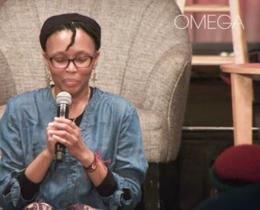I often wonder what it would be like if Jesus were alive today. Imagine Jesus—who wasn’t a Christian, after all, but a Jew—entering a church today, going up to the pulpit, and giving a sermon. Can you imagine how challenging that would be for the congregation? Can you imagine how uniquely different that sermon would be from what many of us received in church?
In the Gospels, Jesus repeatedly challenges the religious authorities of the day, but ultimately what he’s saying is relevant to all forms of religion. It wouldn’t matter if he grew up a Jew, or a Christian, or a Buddhist, or a Hindu, because he’s speaking about the structure of religion itself—its hierarchy, its tendency to become corrupted by human beings’ desires for power, for influence, for money.
Jesus, I think, had a profound understanding that the religion itself, instead of connecting us to the radiance of being, connecting us to that spiritual mystery, could easily became a barrier to divinity. As soon as we get too caught up with the rites and the rituals and the Thou shalts and Thou shalt nots of conventional religion, we begin to lose sight of the primary task of religion, which is to orient us toward the mystery of being and awaken us to what we really are.
Of course, these external forms do have a certain usefulness. The social function of religion is to have a moderating influence on egoic impulses and desires, and this moral and ethical role has been very important throughout history. When people move in the world of time and space from a healthy sense of ethics and morals it’s a very positive thing, and religion has an important function in helping control the deeper and darker impulses of the ego.
Why Jesus Challenged His Childhood Religion
But religion’s primary function is not about conveying ethical and moral codes, not about politics and power and hierarchy. Religion’s primary function is to awaken within us the experience of the sublime and to connect us with the mystery of existence. As soon as religion forgets about its roots in the eternal, it fails in its central task.
Jesus was so critical of the religion of his time because he saw that not only was it not connecting people to the mystery, but that it was actually an active participant in veiling the mystery of existence, in obscuring the Kingdom of Heaven. And so he was a critic from the inside; he didn’t necessarily reject the religion he was brought up in, but he felt called to challenge it, to transform it.
Jesus’s keen insight into the potential for the corrupting influence of power in all institutions—whether they’re political, economic, or religious—is very relevant to the modern day. If Jesus existed here and now as a human being, what he’d have to say about these subjects would be as shocking now as it was two thousand years ago.
What We Can Learn From the Jesus Story
The Jesus story gives us many different images of how spiritual realization can be embodied in the world of time and space. It‘s important for us to realize that we must not only have the courage to recognize the divinity within ourselves, but also to embody it and manifest it in the way we live. Jesus as a living presence is not meek or mild. Jesus was a revolutionary, but he wasn’t a revolutionary just for the sake of rebellion; he wanted to break down the lines of separation between people, between heaven and earth, between human and divine.
The events in the Jesus story can be seen as a living metaphor for what’s necessary in our own being. The true boundaries that need to be broken down are the boundaries within our own minds and within our own hearts. So the whole Jesus story, ultimately, is the map of a journey that happens within us. It’s an invitation to live out the radiance that’s revealed when we have the courage to step beyond anything and everything that separates us.



